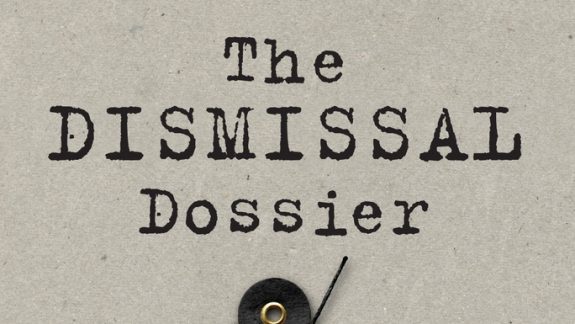Medieval combat for ‘the Palace letters’ (part 2)

By Dr George Venturini
The coup had been long in the making. A full nine months before the 11 November dismissal, and eight months before the constitutional crisis over ‘Supply’, Kerr had established a secret ‘brains trust’ of legal minds to concoct all the necessary ‘legal’ preparations to oust Whitlam. Hocking revealed that Sir Anthony Mason played a key role in it, but its real leader was the Chief Justice of the High Court and member of the Privy Council since 1964 Sir Garfield Barwick, with Mason acting mainly as a conduit between Barwick and Kerr. Barwick was ‘at home’ with of the Royal Family. And what a moving honour it must have been for the boy from a modest family, like Kerr’s actually, to savour such privilege!
Perhaps it was for the same unrequited ambition, that Kerr decided, weeks before the Supply issue had emerged, to brief Prince Charles. An obsequious and timorous Kerr confided his concern that Whitlam might get wind of his intention and ask the Queen to dismiss him before Kerr could dismiss Whitlam, as indeed he was empowered by Australia’s constitution to do. According to Kerr’s notes uncovered by Hocking, Charles’s attitude was: ‘the Australian constitution be damned’, telling Kerr that he thought the Queen should not have to accept Whitlam’s advice in that circumstance. It was after Charles reported back to ‘the Palace’ that Charteris wrote on 7 October a letter, essentially to assure Kerr that the Queen had no real intention of taking Whitlam’s advice, but would disguise her deliberate disregard of Australian ‘constitutional process’ behind delaying tactics.
‘The Palace’ has refused to release a residual bundle of letters between Kerr and several courtiers, as well as to the Queen and Prince Charles. The Queen herself ordered them placed under strict embargo for fifty years, until 2027, and – in addition – stipulated that their release will require the consent of both the then-Sovereign, probably still Charles, and Australia’s then-Governor-General. With so many persons involved, privy, or otherwise determined to maintain that Kerr acted alone, it is unlikely the letters will ever be released. The Guardian continued: “As late as 2011, the Queen’s assistant private secretary at the time of the dismissal, Sir William Frederick Payne Heseltine, GCB GCVO AC QSO [an Australian, who was ‘elevated’ to Private Secretary to Queen Elizabeth II from 1986 to 1990 and has retired in his native Western Australia] said emphatically ”The Governor-General gave no clue to any of us at the palace what was in his mind.”
But, as concluded by Hocking, “Kerr’s journal, and his direct quotations in it from his correspondence with the Queen and with Charteris, show that the palace was kept informed of his consideration of the dismissal of the Whitlam government months before there was even any ‘[Supply] crisis’ to report.”
Regretfully, Whitlam himself – proper and traditional in his views of “The System’ – believed the story; he could not even conceive that Kerr, a grovelling toady who would sell his soul for Royal ‘honours’, was working in collusion with the Crown, even as he drily observed that following his dismissal the Crown showered Kerr with so many gongs that he “had become in a single annus mirabilis the Rt Hon. Sir John Kerr, AK, GCMG, GCVO, K St J.”
Now the longest-reigning head of the United Kingdom’s power structure which sits above any nominally democratic institutions, Queen Elizabeth’s role guarantees not the rights of her subjects – as royal sycophants fantasise. Rather, her untrammelled powers ensure that a popularly elected government can never touch the network of wealthy families, private banks, corporate boardrooms, ‘the City’ as well as Wall Street, élite schools, civil, but not public, servants and secretive security agencies. In other words, ‘the Establishment’ which wields real power ‘at home’, as well as in Australia, and in every other state where the Queen is the monarch.
On 18 October 2017, now Emerita, Professor Hocking published a revised, expanded and enriched edition of The dismissal dossier: Everything you were never meant to know about November 1975 (Melbourne 2017), released on 1 November.
The new edition contains a wealth of information obtained through further research both in Australia and in the United Kingdom National Archives.
Two extracts from that publication are of interest here.
The first is this: “It is through Kerr’s own description of his conversations with Prince Charles and other at the Palace, located in his private papers in the National Archives, that we now know that the Palace was well aware that Kerr was considering dismissing Whitlam as the Opposition moved ineluctably toward blocking Supply in the Senate. Kerr recounts Prince Charles’s solicitous response to the Governor-General’s concern for his own possible recall by Whitlam, should Whitlam hear that Kerr was even contemplating this: ‘But surely Sir John, the Queen should not have to accept advice that you should be recalled at the very time should this happen when you were considering having to dismiss the government.’ ” (J. R. Kerr, 1980 Journal, at 137 Hocking’s emphasis, in The dismissal dossier, at 23-24).
Charlie, the future King Charles III, knew everything.
The second excerpt gives a measure of Kerr. Writing on 25 February 1981 to the Prince of Wales, Kerr closed his letter with the following words: “I have the honour to remain, Sir, your most loyal and obedient servant”. Kerr would refer to conversations with Prince Charles as “lasting moments of treasured privilege” and would close that particular letter with the following words: “I have the very great privilege of remembering a number of conversations which you have been kind enough to have with me in past years.” (J. R. Kerr to the Prince of Wales, ‘Your Royal Highness’, 25 February 1981 NAA M4526 and J.R. Kerr, to the Prince of Wales, ‘Your Royal Highness’, 7 November 1981, NAA M4526).
Could one think of a more servile, self-abasing exercise in slobbering?
In her The dismissal dossier Professor Hocking provided overwhelming evidence that before the dismissal Kerr had extensive conversations and correspondence with the Queen, with Prince Charles and with Sir Martin Charteris, the Queen’s private secretary. To support his actions Kerr clearly wanted a treasure trove of previously unpublished papers released. They were carefully examined by Professor Hocking.
Unbeknown to Prime Minister Whitlam, Kerr was assiduously cultivating ‘the Palace’. As Hocking wrote: “[From the time of Prince Charles visit to Australia in 1974] Kerr was in constant and regular contact with the Palace, first through his discussions with Prince Charles and subsequently through his “regular and thorough reporting to the Queen” from September 1975 and throughout the crisis. Through his “conversations with the Queen and with Sir Martin Charteris”, his letters to the Queen, to Charles, and more frequently to Charteris, Kerr maintained a steady recitation on the vicissitudes of the Whitlam Government, in a Vice Regal subverting of his Prime Minister and his Government. Kerr’s journal, and his direct quotations in it from his correspondence with the Queen and with Charteris, show that the Palace was kept informed of his consideration of the dismissal of the Whitlam Government months before there was even any “political crisis” to report. Kerr had conveyed his thoughts about dismissing Whitlam and his resulting fears about his own job security to Charteris and even earlier to Prince Charles in New Guinea, as well as to the Queen.
* * * * *
There can be no doubt that, contrary to Kerr’s claim and the popular view, Prince Charles, Sir Martin Charteris and the Queen were aware that the Governor General was considering dismissing Gough Whitlam and that none of them had raised any concern – either about such a move or that Kerr was communicating directly with them on this. Most significantly, at no stage did the Palace inform the Prime Minister that the Governor General was communicating with them in this way without Whitlam’s knowledge or approval, and that he was considering such extreme unilateral action against him. Their failure to inform Whitlam, as Kerr himself should have done, could only have given Kerr tacit comfort and confidence that the dismissal of the Prime Minister would not meet any royal resistance.” The Dismissal Dossier. Everything you were never meant to know about November 1975, Melbourne University Press (2017) at 21,23.
Kerr literally took advantage of Whitlam’s firm belief in the propriety of form as well as substance, in the supremacy of the Australian Parliament, the independence of the Judiciary and the separation of powers. He knew very little about Kerr, and suspected even less.
Persons of good faith could hardly be blamed for having been deceived, betrayed and abused: by the Governor-General, the Queen, Prince Charles and the apparatus of ‘the Palace’. (J. Menadue, The Palace knew that John Kerr was considering dismissing Gough Whitlam, 11 November 2015).
Continued Wednesday – Medieval combat for ‘the Palace letters’ (part 3)
Previous instalment – Medieval combat for ‘the Palace letters’ (part 1)
 Dr. Venturino Giorgio Venturini devoted some seventy years to study, practice, teach, write and administer law at different places in four continents. He may be reached at George.venturini@bigpond.com.au.
Dr. Venturino Giorgio Venturini devoted some seventy years to study, practice, teach, write and administer law at different places in four continents. He may be reached at George.venturini@bigpond.com.au.
Like what we do at The AIMN?
You’ll like it even more knowing that your donation will help us to keep up the good fight.
Chuck in a few bucks and see just how far it goes!










4 comments
Login here Register here-
Trevor -
Lambert Simnel -
David Bruce -
Return to home pageThe smell of deception hangs low after the Whitlam dismissal.
The smell of treachery hangs heavy on the Queen
of Australia, her hiers and minions in light of the calculated removal of PM Whitlam and an elected Australian Govt.
After all the lies, innuendo and spin, the dismissal of The elected Whitlam Labor Govt was an actual inside job by the landed gentry, goes down in the history books
Beyond effn belief, as the majority of ripping yarns are, even when in the fullness of time truth outs……..
Actually relevant given the bizarre situation involving witness K and Bernard Collaery, with the latest update on 4 Corners getting at someof the genuinely sinister nature of what the likes of dutton and Porter have cooked up for our cooked democracy..
Both involve the law cynically employed to stifle justice, remove any transparency and maintain a crazed oligarchy.
When the news comes out that “London Bridge is down” I would not be surprised to see the whole house of cards come tumbling down.
It nas already happened to the Dutch Royal Family.
With the Dismissal, the death of the “People’s Princess” revelations and the Epstein factor, I hope Charlie is spared the fate of the previous Charles?
There are very powerful forces involved here, so we might get lucky and have more visibility into this world as a Christmas gift?
Pingback: Medieval combat for ‘the Palace letters’ (part 3) - » The Australian Independent Media Network